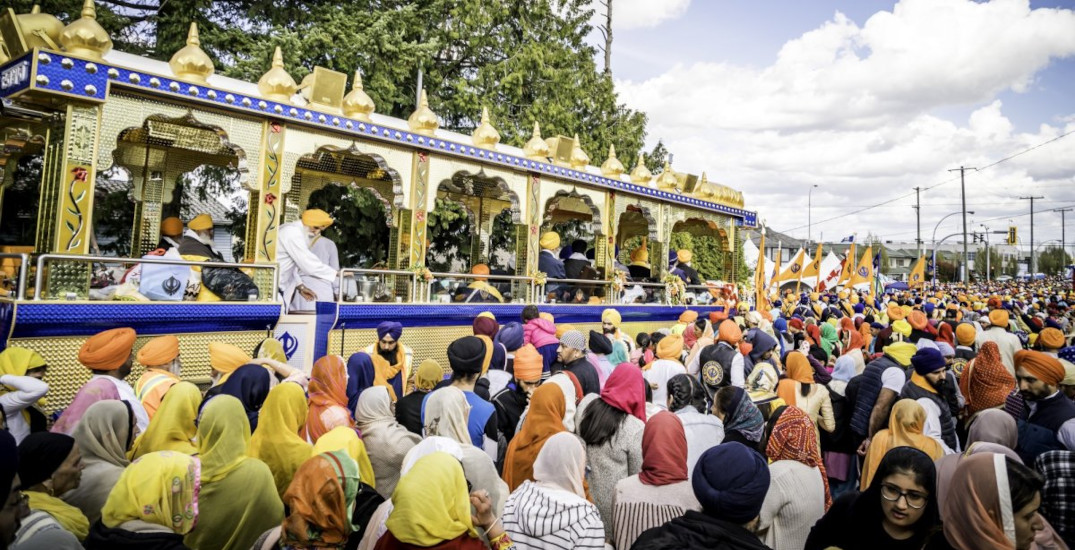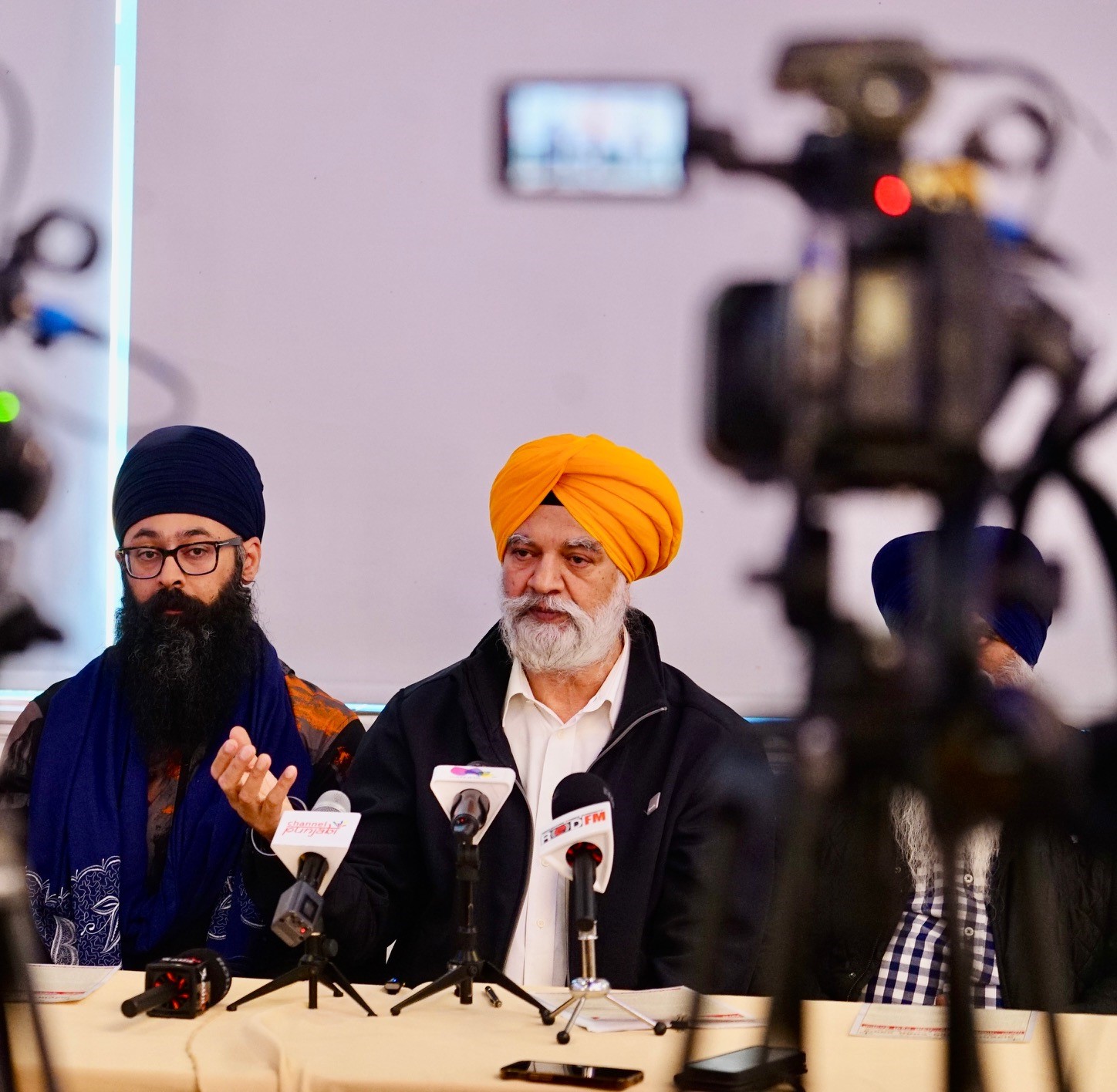DESIBUZZCanada
Events Listings
Dummy Post

International Day Of Yoga To Be Virtually Celebrated Saturday At 4pm

CANCELLED: Coronavirus Fears Kills Surrey’s Vaisakhi Day Parade

ADVERTISE WITH US: DESIBUZZCanada Is The Most Read South Asian Publication Online

SURREY LIBRARIES: Get Technology Help At Surrey Libraries

WALLY OPPAL: Surrey Police Transition Update On Feb. 26

GONE ARE THE DAYS - Feature Documentary Trailer

Technology Help At Surrey Libraries

Birding Walks

Plea Poetry/short Story : Youth Contest

International Folk Dancing Drop-in Sessions
Vaisakhi Is A Great Time To Celebrate, Retrospect And Introspect
- April 13, 2024

By Zile Singh
April 13, 2024
On Vaisakhi Day, lakhs of people of all religious backgrounds gather at Khalsa Diwan Society, Ross Street and on the Main Street, Vancouver and also separately in Surrey, British Columbia to celebrate Vaisakhi according to Sikhi traditions. Vaisakhi is an ancient Hindu festival marking the Solar New Year and also celebrating the spring harvest. It is one of the three Hindu festivals chosen by Guru Amar Das to be celebrated by Sikhs (other being Basant Panchami and Diwali). The Khalsa calendar (New Year) also starts from the creation of Khalsa Panth on Vaisakh 1, 1756 Bikrami (30 March 1699). Vaisakhi has been a harvest festival in Punjab for a long time, even before it became important to Sikhs. The History of Vaisakhi, in relation to Sikhism, traces its origin when on March 30, 1699, Guru Gobind Singh, the tenth in succession called a congregation ceremony from across the country at Anandpur Sahibin Punjab to instil the spirit to fight against the tyranny of Mughal emperor Aurangzeb. At the call of the Guru, among thousands, five persons, later on called “Panj Piaras”– (fivebeloved) stood up to shed their lives to fight the tyranny and the injustice. They were Bhai Daya Singh (a shopkeeper from Lahore), Bhai Dharam Singh (a farmer from Meerut), Bhai Himmat Singh (a water- carrier from Jagannath Puri, Odisha), Bhai Muhkam Singh (a tailor from Dwarka – Gujarat), Bhai Sahib Singh (a barber from Bidar, Karnataka). Thus,the Khalsa Panth was founded.
From then onward the followers of the Guru were given the surnames 'Singh' and 'Kaur' for male and female, respectively. They were also commanded to bear the following articles of faith: Kesh (hair), Kanga (wooden comb), Kacchera (loose undergarment), Kirpan (short, curved sword) and Kara (iron or steel bangle). The Sikhs were required to refrain from: Hukka (smoking and intoxication), Hajjamat (shaving of hair), Halaal (meat made in Muslim way), and Haraam (adultery and undue earnings).

Sikhism is the fifth largest religion of the world. It is a distinct monotheistic religion with its own unique divine scripture and beliefs. Kirat karo (right earnings), naam japo (remember God) and vandcchako (share your earnings with needy) are its basic advisories. It was founded in the Punjab Province (Undivided India) in the 15th Century by Guru Nanak Dev, the first Guru of the Sikhs. The Ten Gurus in their succession are: Nanak, Angad, Amar Das, Ram Das, Arjan Dev, Hargobind, Har Rai, Har Krishan, Teg Bahadur and Gobind Rai (later Gobind Singh). The Tenth Guru bestowed the Gurudom forever to Guru Granth Sahib - the Holy Book containing the teachings of all the Gurus in addition to the teachings of some renowned Bhagats/ saints of different castes of that time. They are Kabir, Namdev, Ravidas, Sheikh Farid, Trilochan, Dhanna, Sheikh Bhikan, Jaidev, Surdas, Pipa, Sadhna etc. The fifth Guru Arjan Dev compiled the Adi Granth in 1604 and installed it in Harminder Sahib, Amritsar. Mian Meer, a Muslim fakir laid the foundation of the Golden Temple in 1588.
Retrospectively, why only the Panj Piaras belonging to the lower castes? Were there no one in the gathering brave enough from higher castes to come forward? Maybe no one from higher castes was there at that momentous moment. Not only during the ceremony to establish Khalsa, but the lower caste bravery is also an example in Sikhism. When Guru Tegh Bahadur, the ninth Guru of the Sikhs was beheaded (martyred) on the orders of Aurangzeb on 24 November 1675 in Delhi, the mortal remains of the Guru were stealthily taken to safer places to avoid their falling into the hands of the barbarians. Bhai Jaita took Guru’s head to Anandpur to hand over to Guru Gobind Singh. Bhai Lakhi Vanjara took the body to his village Rakab Ganj and cremated by setting his hut on fire. Today, Gurdwara Rakab Ganj in Delhi, stands at that place. Both the Bhais, Jaita and Vanjara were of lower castes. Guru Gobind escaped from Chamkaur battle by wearing the cloths of Bhai Sangat Singh, an outcaste. As a result, Sangat Singh, donned in the attire of the Guru was killed. In literary circles, the contribution of Giani Ditt Singh, another lower caste Sikh cannot be ignored. Gurus, especially the first and the tenth understood the importance of lower castes. Bhai Mardana, a lifelong companion of Guru Nanak was a low caste Muslim. Nanak borrowed a lot of mystic knowledge from Kabir and Raidass who were his contemporaries but senior in age.

Introspectively,after 325 years of the founding of the Khalsa Panth, there are some causes of concern. As for the casteless society, let us pay heed to what Gurbani says “Neechanandarneechjaat, neechihunattneech… and Ek noorte sab jag upjia”…. Today, the Panth has compartmentalized itself on the basis of caste. For example, Jatts, Ramgarihas,Muzhabis and Ravidasia Sikhshave their own separate Gurdwaras and social institutions. Matrimonial columns in the newspapers are a clear indication of heterogeneityin society. The Sikh diaspora has suffered a stark discrimination on the basis of race from the Canadian system over the years. Yet, unfortunately, they have not understood the pain of discrimination on the basis of caste.
Not only this, but some other cardinal principles have also been ignored. Drug menace, domestic violence, extravagance, caste pride etc. are quite apparent. The complexes among the residents of Doaba, Malwa and Manjha regions are distinct in the Diaspora. Superstitions and rituals are on the increase.
Finally: Let us be indebted to these lowly folks.
Their sacrifices are many, Panth talks.
Let us include them in our everyday life.
Accept them happily as husband and wife.
The living Spirit of Gurus, then and now.
Not all the power and fame belongs to thou.
They stood out bravely, in testing times.
Their hearts beat in Gurbani’s all rhymes.
--- zile singh
Zile Singh is a well respected Columnist, Writer and a Vipassana Meditater. He has a Post-Graduate Diploma in Human Rights. He can be reached at zsnirwal@yahoo.ca

















